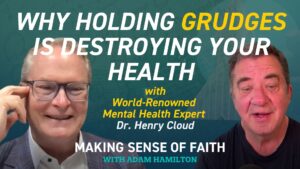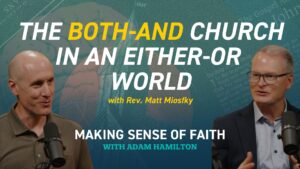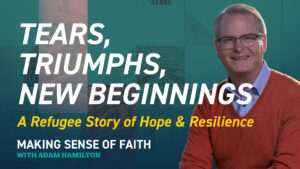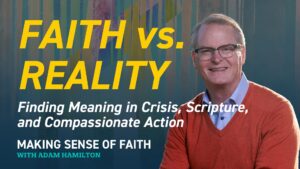By Dr. Rebeca Chow, LPC-S, LCPC-S, RPT-S
In a world where you’re always connected—texting, scrolling, Zooming—it’s wild how many of us still feel lonely and disconnected. Friendships that once came naturally now seem to take more effort and intention. You know what? That’s okay…. When you understand how you’re wired for connection, you can be more intentional about building friendships that are safe, supportive, and meaningful.
You’re wired for connection—but friendships change as you grow. Who are you today, and what do you need from your friendships?
At its core, friendship comes down to three big things:
- How your brain perceives safety and connection
- Where you’re at in your life and development
- What you have learned from relationships with your earliest caregivers
It’s not just about understanding the science; it’s about using it to create friendships that feel safe, supportive, and real.
It All Starts with Safety
Here’s the deal: your brain is constantly scanning for one thing—Am I safe, or am I in danger?
When you do feel safe, your nervous system shifts into social engagement mode. This is when you feel grounded, calm, and open to connection. When your brain senses danger (whether it’s real or just the weight of stress and past experiences), it flips on survival mode—fight, flight, or freeze. When you’re stuck there, it’s almost impossible to recognize safe and healthy relationships… even when they’re right before you.
It’s a lot like wearing glasses with the wrong prescription. Everything gets distorted—blurry, unclear, and hard to trust. You might end up:
- Saying no to a relationship that’s safe and life-giving, simply because it feels unfamiliar
- Clinging to a connection that isn’t healthy, just because it feels familiar—even if that familiarity is rooted in chaos or inconsistency
That’s why it’s so important to pause and check in with yourself:
- Why am I pulling away from this relationship? Is it because I’m not used to healthy, safe connection?
- Why am I chasing this relationship? Is it because it feels familiar, even if it’s not good for me?
When you take a moment to slow your breath, calm your body, and get grounded, it’s like adjusting those glasses to a clearer lens. Suddenly, you’re seeing relationships for what they really are—not through the filter of past wounds, old survival strategies, or outdated beliefs. You can start choosing connection from a place of clarity and trust, instead of habit or fear.
Practical Tip:
Before you text a friend, hop on a call, or have a vulnerable conversation, take a minute. Slow your breath. Drop your shoulders. Maybe put your hand on your heart. This tiny pause helps shift you into safety mode—and makes authentic connection easier.
“I See You. I Hear You. You Matter.”
We are wired for connection. From the cradle to the grave, we are relational beings. It starts with that very first relationship—the person who took care of you as a baby. Whether they got it perfect isn’t the point. What matters is if they were good enough at sending this message:
“I see you. I hear you. You matter”.
We all have a deep need to feel seen and heard and know we matter. It’s wired into us from the very beginning. But if you didn’t consistently get that message growing up, it can shape how you show up in friendships today. You might:
- Pull away when relationships feel too close, as if closeness isn’t safe
- Find yourself chasing connection, feeling anxious when it isn’t immediately returned
The good news? Becoming aware of these patterns is a powerful first step. And you don’t have to figure it all out alone. Finding a therapist you feel comfortable with can make all the difference. Therapy offers a safe space to untangle old patterns and learn how to create deeper, healthier, and more secure connections moving forward.
Practical Tip:
When you’re with a friend (or even thinking about one), pause and say—either out loud or in your head—I see you. I hear you. You matter. Then reflect: When was the last time you gave yourself that same message? Try writing it down and putting it somewhere visible. Your connection to yourself sets the tone for how you show up in your friendships.
Friendship Shifts Over Time—And That’s Normal
Our needs for connection change as we move through life.
As kids, you bond over fun things—games, sports, hobbies. You made friends with whoever wanted to ride bikes or play with you on the playground.
As teens, your need for belonging becomes especially strong. You likely chose your social circles based on shared interests—whether in style, music, or similar perspectives.
Then adulthood hits. Careers, parenting, caregiving, life. And you lose track of yourself. You’re so busy being what everyone else needs—at work, at home, in life—that it’s easy to forget what you want. Suddenly, you’re craving friendships based on shared values and experiences, but you’re not even sure who you are anymore. Sound familiar?
Friendships change because we change.
Practical Tip:
Ask yourself: What do I need from friendship right now? Is it light and fun? Or deep and real? Write it down. Then look around—
Who in your life already gives you that? Who might you reconnect with? Where could you show up in a new way?
Knowing what you need is the first step in finding it.
Why Does Friendship Feel Harder Now?
Life is BUSY. Stress has many of us stuck in survival mode—making it a challenge to be open and vulnerable. And while social media makes it look like we’re super connected, sometimes it’s just an illusion.
You can have thousands of followers online but feel more alone than ever.
Practical Tip:
Make space for intentional connection.
Take a second and ask yourself: Who am I right now? What do I actually want from the people in my life?
Here’s a fun exercise: Think about something as simple as your favorite drink. Do you drink Diet Coke because you love the taste—or because it reminds you of a time when life felt epic?
It’s a small question that packs a big punch. Rediscover yourself first, then build connections from that grounded and authentic place.
Finding Your Way Forward
Friendship doesn’t get more challenging because we’re doing it wrong; it gets more challenging because we grow. If we take advantage of it, growth brings opportunities for deeper, more meaningful connections—if you are willing to pause, and grow your curiosity.
You can’t do friendship well if you’re not willing to ask: Who am I today? What do I need?
Once you know your friendship needs, you’ll be amazed at the following friendships.













